LabelTalk
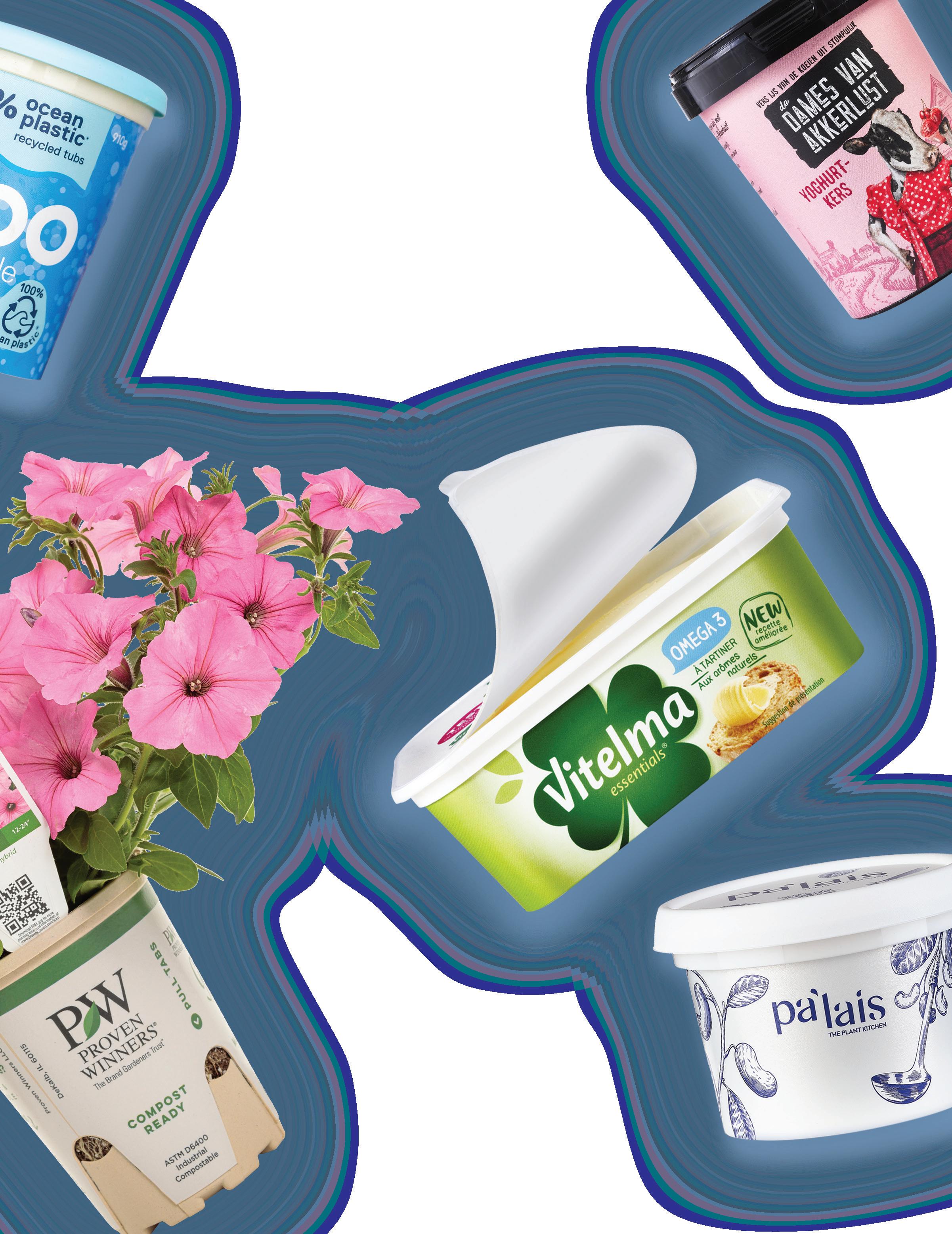
MCC Verstraete - Issue 2022 EN
Dear reader,
We are pleased to share the new release of our LabelTalk magazine, our former Fuse magazine! The goal of this annual publication is to bring you ideas, inspiration, and knowledge and help to ensure your label projects are a success.
In this issue, we sat down with several experts from around the globe to learn more about their vision on sustainability packaging. On top of that, you can discover more beautiful Label Upgrades to inspire your creativity for your next label project. Labels can be more than just a pretty face with our functional label solutions. We are excited to share our knowledge and experience with you, and hope it spurs creativity, drive, and the quest to let your label tell your story.

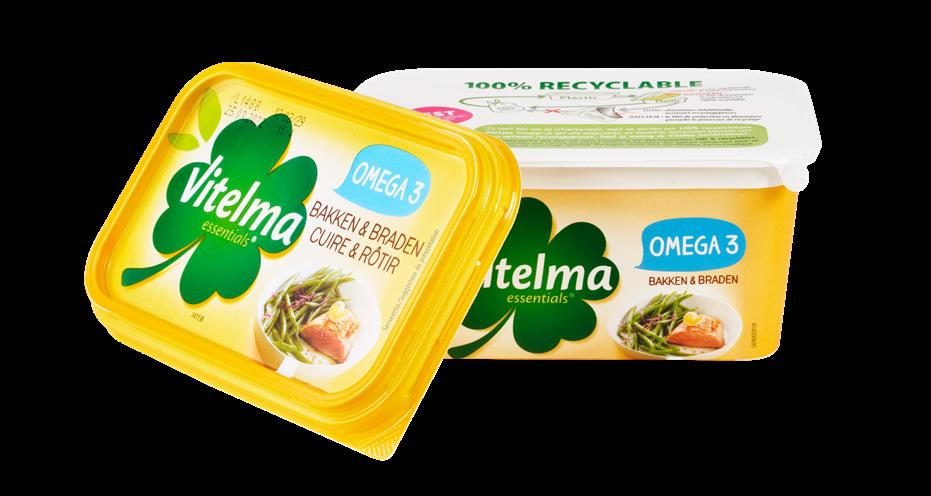
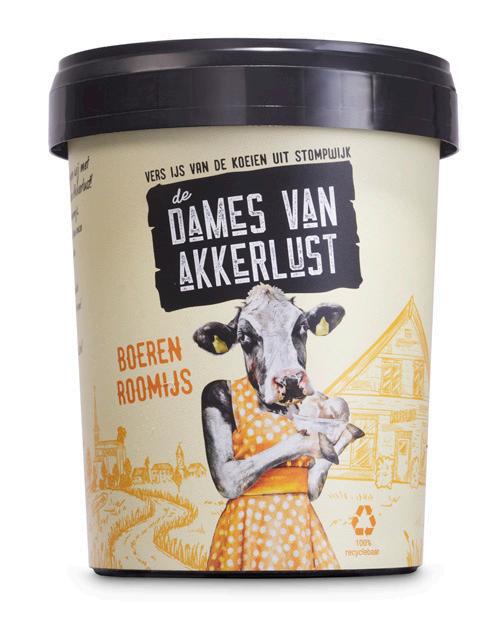
Finally, we extend a heartfelt thank you to the customers whose success stories you find in these pages. It is their creativity and continual push for innovation that keeps us inspired.
Happy reading!
The MCC Verstraete Team
2
Visit our website www.verstraete.mcclabel.com to discover more on how our premium label solutions can meet your needs.
In this
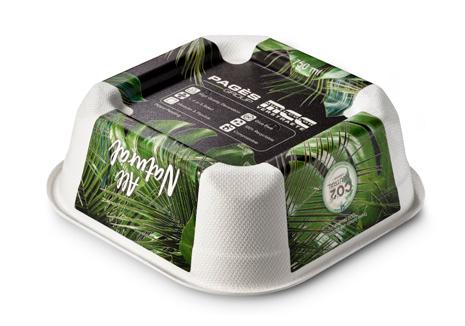
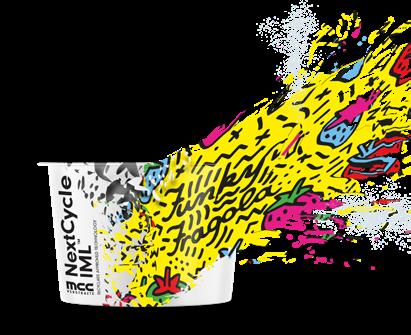
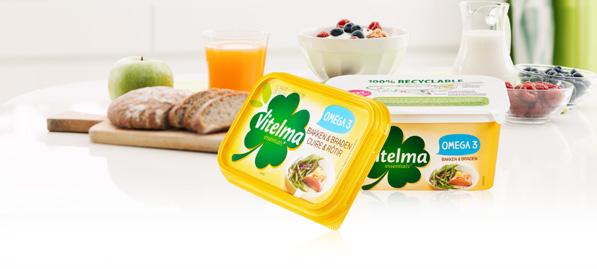
and
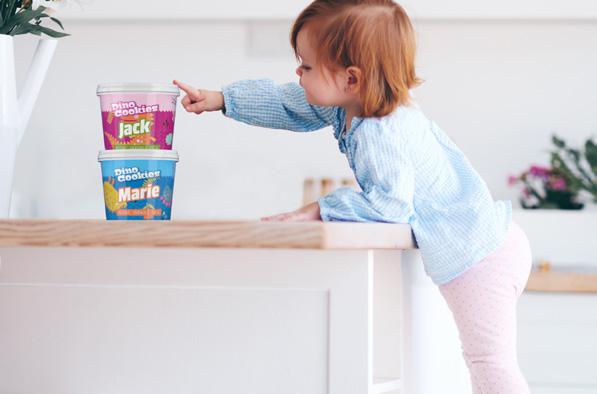
3
issue 18 Testimonial Vandemoortele: Making packaging 100% recyclable 36 IML
digital printing: The perfect match The LabelTalk magazine is a yearly MCC publication, focused on a specific market segment. It is a compilation of what we accomplish for and together with our customers on a daily basis. It covers international success stories as well as the latest and greatest news about innovative label solutions, market trends and unique services we offer. We love to share our knowledge and experiences to help meeting our customers’ needs and supporting their business growth ! Share yours? Mail marketing@mcclabel.com Copyright © by MCC. All rights reserved. The content of this document, including all copy, images, and attachment(s) are property of MCC and should be treated as confidential. It cannot be shared with or forwarded to third parties and cannot be published without MCC’s prior permission. If you have any questions regarding the use of this document, please email marketing@mcclabel.com. 4 Growing Globally to Serve Locally 8 Introducing NextCycle IMLTM The Art of Recycling 12 Smart and sustainable IML packaging for De Dames van Akkerlust 16 Pa’lais: The packaging that is too charming to throw away 18 Testimonial Vandemoortele: Making packaging 100% recyclable 22 Testimonial Syntegon: Creating sustainable packaging with SealPPeel 26 Molded Fiber Labeling™A sustainable label offering by MCC Verstraete 28 Sustainability Built Into Every Fiber 32 Organic fertilizer buckets get the natural look with IML 34 Metallic IML adds sparkle to Kware’s new royal Icing range 36 IML and digital printing: The perfect match 40 Going Green with Digital 42 MOO serves up premium yoghurt in sustainable IML packaging 46 Versatile IML labels for Keter’s Dashing Deco Boxes 48 Compostable garden pots feed the circular economy 50 Meet the MCC Verstraete Professionals 8 Introducing NextCycle IMLTM The Art of Recycling 28 Sustainability Built Into Every Fiber
Growing Globally to Serve Locally
Peter Grugeon, Justin Bennett, and Mathieu Nieuwenhuyse reflect on MCC’s recent acquisition of Herrods IML in Australia and what it means for the company’s increasingly global structure.
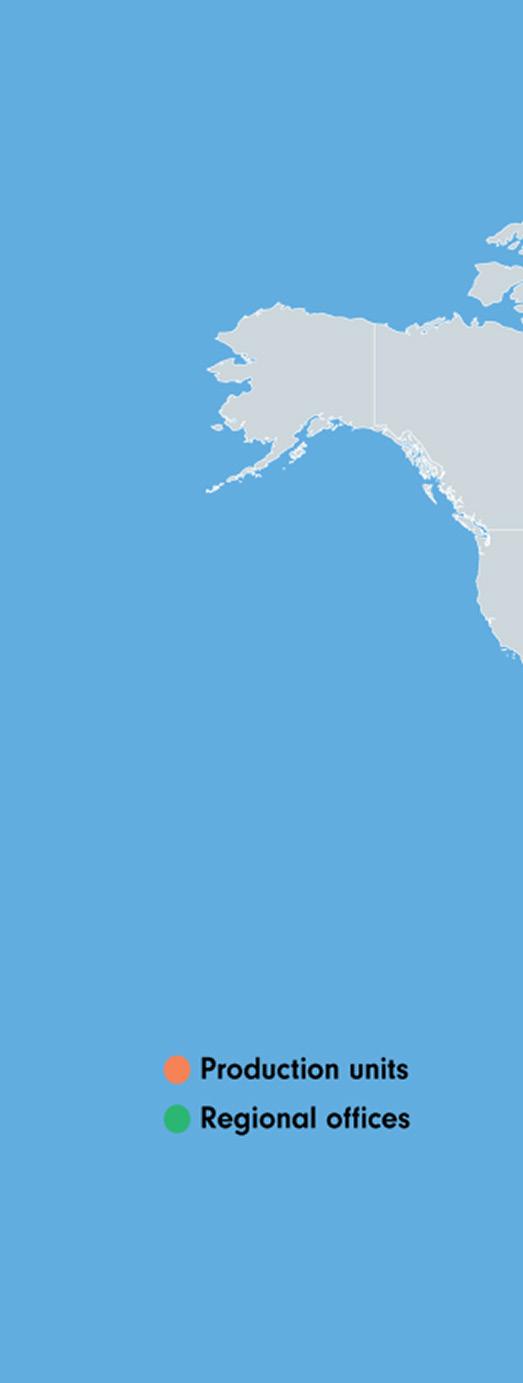
In March 2021, MCC Verstraete announced its acquisition of Melbourne, Australia-based Herrods IML (now known as MCC Verstraete Australia), a leading provider of injection molding label (IML) solutions in Australia and New Zealand. Both MCC Verstraete and Herrods IML began as humble, family-run businesses and quickly grew to become important players in the IML landscape. By joining forces, we strengthened our market position on a local and global level, and MCC Verstraete gained a foothold in Australia and New Zealand markets, as well as Asia.
In addition to this new expansion, MCC Verstraete has also operated a production plant in US-based Batavia, Ohio since 2018. As the company continues to grow around the world, we interviewed key members of the MCC Verstraete team to learn more about its global structure and what this new acquisition means for the company, including future expansion plans and MCC Verstraete’s ability to respond to new packaging trends.
Below, dive into our global conversation with Managing Director of MCC Verstraete Peter Grugeon who is based in Maldegem, Belgium, General Manager of MCC Verstraete Australia Justin Bennett who is based in Melbourne, Australia, and General

Manager of MCC Verstraete North America Mathieu Nieuwenhuyse who is based in Cincinnati, Ohio.
What was the main reason for MCC Verstraete’s acquisition of Herrods IML?
Peter Grugeon: COVID reinforced the idea for us that, in regions where MCC has a presence and market share, it’s important to be locally present - present not only with a sales office, but also a production facility. The reasons are two-fold. One, it’s important to stay close to our customers, to understand them very well, and to eventually also be active in the same time zone.
Peter Grugeon Managing Director of MCC Verstraete
And secondly, around the world, we see a move away from globalization towards local production again — a trend accelerated by the logistics issues seen during the pandemic.
Justin Bennett: I would add the general consensus has been that at some point, the IML label industry would be strengthened by this acquisition. This was not a surprise, rather more like a predicted outcome.
Global structure
4
How has the merger process been for Herrods IML?
Justin: Integration has been an in-depth process involving many meetings, trainings, and different procedures and reporting. These changes, although improvements, have been a shift in the agile, less formal way that our business has been run over the years. It has been challenging, but we are now on the other side of those challenges and will start to reap the benefits.

After this acquisition, what is MCC Verstraete’s global structure?
Peter: Since we believe that we should act close to our markets, we have decided to place general managers in North America and Australia, in addition to our headquarters in Belgium. On a monthly basis, we come together to exchange information and make decisions, but autonomy is also granted locally in each country — and that is important. If we want to make quick decisions in a fast-growing environment, we need to give some autonomy in the market. Now, our operations for Europe, the Middle East, and Africa are managed from Belgium,
the Americas are managed from North America, and Asia-Pacific from Australia. In total, we employ around 700 people, approximately 550 in Belgium, close to 100 in North America, and just over 60 in Australia.

What are the main benefits of this acquisition for MCC Verstraete and its customers?
Peter: With this acquisition, MCC Verstraete became the market leader in the Australian market, and for our Asian
5
Justin Bennett General Manager of MCC Verstraete Australia
“
Herrods has always been well regarded for its high quality of service with a friendly smile, but now our reputation has been strengthened by the partnership. ”
Justin Bennett, General Manager of MCC Verstraete Australia
customers, there will be a lot of opportunities to source from the Australian plant, rather than only from Belgium.
Justin: Being part of a much bigger group gives Herrods IML and the Australian IML industry more opportunity to grow. This, coupled with the market leaders in IML no longer being competitors but partners, means that best practices and intellectual property can be shared between sites. Herrods has always been well regarded for its high quality of service with a friendly smile, but now our reputation has been strengthened by the partnership. Obviously, the high focus on sustainability and other innovations that MCC Verstraete has to offer is very beneficial to our business and the future of the plastic packaging market too.
Does MCC Verstraete have any further expansion plans?
Mathieu Nieuwenhuyse General Manager of MCC Verstraete North America
Mathieu Nieuwenhuyse: Over the last four years, we have increased the capacity of MCC North America to serve about 55% of the North American market needs, as well as some projects in Mexico. Further investments are planned to cover the market needs and strong IML growth here, so we will gradually build the capacity and continue to invest in our local production strategy.
Peter: As Mathieu explained, our growth is concentrated in North America and the Americas, but we have also been working intensively on some breakthrough innovations linked to the sustainability challenges and opportunities that lie in front of us, and those are expected to bring us some further growth in Europe and other parts of the world.
You just mentioned sustainability — can you touch on what trends you see in the packaging industry and how they affect MCC Verstraete’s business strategy?

Peter: Plastics often have a rather negative perception,

and unrightfully so. When we can recycle packaging material, plastic packaging remains the best solution there is, but that is a more difficult message to spread. So, we need to have courage as an industry to share the right message, and to explain the reality of things. Overall, as the focus on circular economy is increasing and investment is directed accordingly, the future of the plastics industry will be shaped in the next years with a strong focus on mono-material solutions. MCC Verstraete has a strong role to play in that story. Today, we are offering solutions that should allow IML packaging to be fully recyclable as well as circular. The ultimate dream for us is that recycled polypropylene (rPP) will become widely available on the market, just as recycled PET already is.
Mathieu: Next to that, we also see the trend of smaller packaging sizes and the rapid growth of IML, which is now replacing some other types of packaging in North America due to labor shortages. Producing IML packaging is a one-step process, which, labor-wise, is much less complex than some other solutions that require two or three steps.
What other sustainability solutions is MCC Verstraete focusing on at the moment?
Peter: I would like to highlight NextCycle IML™, which

Global structure
“
The ultimate dream for us is that recycled polypropylene (rPP) will become widely available on the market, just as recycled PET already is.”
Peter Grugeon, Managing Director of MCC Verstraete
6
we consider to be the next generation of IML labels. This label solution allows a fully decorated IML packaging to be mechanically recycled without any impact of the IML label on the recycled PP. In a classic recycling process as it exists and is applied today, the NextCycle IML™ label is separated from the container, and a clear stream of container flakes without any ink contamination is generated without the need for any extra investments by the recyclers.
A second important innovation motivated by the trend to use less plastics is Molded Fiber Labeling™. It’s a unique labeling solution for molded fiber tubs which can, for some applications, serve as an alternative to polypropylene packaging. Together with Pagès, we have developed a solution to label this type of packaging using a glue free paper MFL label applicable to both dry and wet fiber molding.
Mathieu: Additionally, I would mention SealPPeel, as we see there is huge interest for this solution right now. SealPPeel offers a polypropylene alternative to aluminum lidding, such as the ones used to sealing yogurt tubs or other cups. In combination with a polypropylene tub, the packaging is mono-material, ensuring easy sorting and recyclability.
MCC Verstraete recently launched its customer portal that allows customers to order IML labels online. What is the value of this? And are there any other services that will be added in the future?


Mathieu: This is all about smart, digital communication. Ordering labels should be easy, fast, and reliable. The portal is available 24/7 and provides immediate and instant pricing. Orders can be entered directly into the portal by our customers or they can simply upload their
order document. In addition, price lists and pricing simulations can be found in the pricing tool. It also allows customers to manage their artworks online — artworks can be stored in an online library and directly approved. The initial feedback has been very positive. Our customers are recognizing the system as a time saver, and we all know that time is money. We are in constant contact with our customers to identify needs that can be served through the portal. So far, we’ve only made small adaptations, but we are planning to respond to further needs that may appear in the future.
7
Don’t
miss
out on
our monthly inspirational and educational newsletter. Subscribe today
Introducing NextCycle IMLTM
The Art of Recycling
Industry pioneer MCC Verstraete continues its strong innovation drive with NextCycle IMLTM – a revolutionary in mold labeling (IML) solution developed to maximize the value of recycled PP (rPP), as brand owners face more stringent legislation, and the packaging community moves ever closer towards a circular economy for rigid plastics.

Innovation
8
Benedict Huysman, Product Innovation Project Lead at MCC Verstraete

The latest in a series of market-leading innovations from MCC Verstraete, NextCycle IML™ adds significant recycling benefits to the already established recognition of IML as the most sustainable and efficient decoration process for rigid plastic packaging. Developed to enable brand owners meet the targets for recycled content in plastics packaging as set out in the forthcoming legislation and any other regional regulatory requirements, NextCycle IML™ comes with full Technology Approval from RecyClass.
“MCC Verstraete is committed to a sustainability strategy with a clear vision and mission, continuing to set higher standards for a sustainable future for IML in anticipation of more market regulation. NextCycle IML™ is a completely new concept which promises to disrupt the rigid PP packaging and recycling industry by enabling high purity, and potentially even food grade, rPP to be derived from mechanical recycling,” said Nico Van de Walle, Product & Circular Economy Manager. “This is an important new milestone not just for MCC Verstraete, but for the entire rigid PP packaging industry.”
Addressing the bottleneck NextCycle IML™ technology will help resolve the current bottleneck by enabling recyclers to provide large quantities of improved quality rPP to meet the growing demand. Engineered for mechanical recycling, the innovation has already been classified as “fully compatible with the existing European industrial
recycling processes for PP containers” by RecyClass, the cross-industry initiative from Plastics Recyclers Europe which evaluates the recyclability of plastic packaging.
Today, the majority of food-grade rPP comes from chemical recycling, but this process is quite expensive and lacks the volume to meet the market need for foodgrade rPP as this continues to increase exponentially. Secondly, chemical recycling is not always recognized as recycling which could cause problems in the future, and there are still many ongoing discussions around the overall environmental impact. In contrast, mechanical recycling offers the potential to improve and increase rPP output with NextCycle IML™, at lower cost and without any changes to the process.
Meeting the challenge
The challenge for the Product Innovation Team was to devise a new product that built on the excellent recycling properties of standard IML, which has been the best-in-class solution for rigid plastic packaging for over 30 years.
Standard IML decoration uses polypropylene (PP) label material which is printed on an offset press before being fused onto a PP container during the molding process. As a mono-material solution, IML packaging can be sorted and recycled very easily, making it so far one of the most environmentally friendly solutions on the market.
“IML has always been ahead of its time because it can be recycled in the normal waste streams; this

“ We are now working to expand the portfolio to offer the NextCycle IMLTM technology for all our look and feel options, because we believe that we have the best future-proof IML solution for the circular economy.
”
9
has been the case for decades, but we are searching for more sustainable solutions for the future, such as NextCycle IML™, because we know that we have to do even better for our customers and for the planet,” said Nico.

With the NextCycle IML™ technology, mechanically recycled transparent IML packaging can be turned into transparent rPP, white NextCycle IML™ packaging into white rPP. Put simply, the company has found an innovative way to ensure that a fully decorated IML packaging can be mechanically recycled without any impact of the IML label on the rPP, without any additional investment needed from neither the recycler nor the packaging converter.
“The biggest challenge in this development was to create the perfect adhesion that will simultaneously allow the label to stay securely on the container during the product’s lifecycle right through to waste sorting but will then also release easily once it enters the grinding process,” explained Benedict Huysman, Product Innovation Project Lead at MCC Verstraete.

So how does it work?
“One of the benefits of NextCycle IML™ is that the consumer does not have to get actively involved but can simply recycle the PP container in the usual way,” continued Benedict. “All the action happens at the recycling plant, where the NextCycle IML™ printed
“ NextCycle IMLTM is a completely new concept which promises to disrupt the rigid PP packaging and recycling industry by enabling high purity, and potentially even food grade, rPP to be derived from mechanical recycling.”
Nico Van de Walle, Product & Circular Economy Manager at MCC Verstraete
Innovation 10
label separates automatically and fully from the PP container during the grinding process.”
All post consumer packaging waste that enter the MRF are sorted according to type to ensure the purity of the end product. At the recycling plant the sorted packaging waste is grinded and at this very moment, the NextCycle IML™ label automatically detaches from the packaging. Once the flakes have been washed and dried in the normal way, the lighter label flakes are separated from the heavy fraction container flakes using air elutriation. These clean container flakes are collected and extruded into clean rPP pellets which are used for for final rPP compounding and eventually new packaging. The label flakes as part of the light fraction can still be recycled as part of the colored rPP stream or send for chemical recycling. So all elements of the initial packaging are being recycled in practice without any material losses or residue.
Another critical aspect of NextCycle IML™ is that the offset-printed decoration is done with special nonbleeding printing inks, which avoids problems with the water becoming contaminated during the washing process.

As the ultimate validation, NextCycle IML™ has been granted RecyClass Technology Approval which means it has been tested under authorized lab conditions according to established protocols and deemed to be fully compatible with EU rigid PP recycling streams. The RecyClass approval covers colored, including white, and rigid PP packaging.
And what is the outcome?
Packaging decorated with NextCycle IML™ can be
recycled via the established mechanical method without any modifications. Vitally, the outcome is ‘clean’ rPP that enables the potential to produce food-grade rPP, which is a huge achievement and the start of a new era in sustainability for IML. For brand owners, the better quality rPP will support them in achieving recycled content targets and could offer the potential to be awarded bonuses within the future modulated EPR schemes.
“We are convinced that NextCycle IML™’s excellent value proposition and the positive contribution it makes to the circular economy mean that this solution will gradually replace standard IML with Europe as first mover market,” said Nico. “We have fixed the roof before it starts raining so to speak, because there is no doubt that future legislation will demand even more content of rPP in food packaging applications. This is MCC Verstraete optimizing IML technology because we take our responsibility very seriously and support the market any way we can.”
In conclusion, Benedict added, “This is an incredibly important innovation and a big accomplishment for everyone involved in bringing it to market. We are now working to expand the portfolio to offer the NextCycle IML™ technology for all our look and feel options, because we believe that we have the best future-proof IML solution for the circular economy.”

5 things to remember about NextCycleTM Fully compatible with the PP recycling stream Approved by Mechanically recyclable without the IML label affecting the rPP No trade-off between Marketing and Recycling Enables food-grade rPP 1 2 3 4 5 11 Learn everything about the next generation of IML!




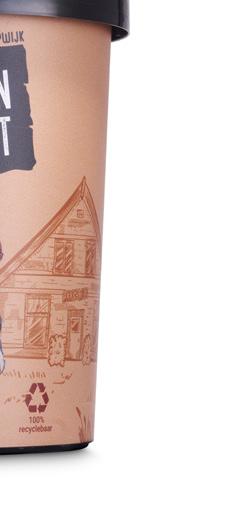







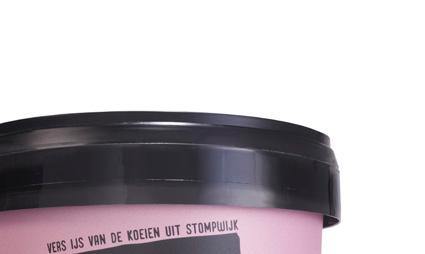









12 Customer case
Smart and sustainable IML packaging for De Dames van Akkerlust
De Dames van Akkerlust started off as a love affair. When Demi Olsthoorn met her boyfriend, a sixth-generation dairy farmer in the Dutch village of Stompwijk, she instantly fell in love with him, and his beloved cows. Soon she had the idea to start making her own ice cream from the cow’s milk, and in March 2020, she turned that love into a full-fledged business. De Dames van Akkerlust was born.
The challenge — sustainable packaging for a modern brand
Using only 100% organic milk straight from Farm Akkerlust as well as other natural ingredients, De Dames van Akkerlust is an artisanal alternative to industrial ice cream. “We are a sustainable farm, so the packaging absolutely had to be sustainable as well,” explains Demi Olsthoorn founder of De Dames van Akkerlust.
Previously, the company used traditional cardboard ice cream cup packages which were not recyclable due to a plastic layer on the inside. After some research, they started working with Jokey, a packaging specialist in sustainable packaging and long-time partner of MCC Verstraete, to find a more sustainable — yet still lightweight — solution aligned with their brand values.
The solution — Interactive IML labels

In addition to being sustainable, it was important to Demi that the packaging told a story. MCC Verstraete’s Interactive IML labels were the perfect fit. The packaging and the label are both made out of PP which makes the product 100% recyclable. Further, by integrating a digital watermark onto the label, the packaging is interactive as well. This intelligent feature adds value at all stages of the packaging journey — from tracking and authenticating products to boosting customer engagement to digitally sorting the package for recycling.
“With Interactive IML, the watermark is invisible, and it is possible to add a story. We are a step ahead of the competition as this brings a higher level of customer engagement,” says Demi.
Demi Olsthoorn, founder of De Dames van Akkerlust
Curious to feel and touch this label? Open your sample pack and experience it with your own eyes.
“ With Interactive IML, the watermark is invisible, and it is possible to add a story. We are a step ahead of the competition as this brings a higher level of customer engagement.”
13
Currently, De Dames van Akkerlust packaging connects the customer to the company’s website, but their goal is to eventually link it to the company video or a video showing how the ice cream is made. With Interactive IML, it is even possible to add augmented reality in a later phase.

When it comes to post-consumer recycling, the Digimarc barcode offers another big benefit as it can be used to sort the package into the proper waste fraction.
“The digitalization of packaging opens up countless opportunities for a transparent supply chain, including the Holy Grail project and digital watermarks that enable better sorting qualities.” says Mike Weinerowski, Lead Buyer Purchasing Department Jokey Group. “It supports our 360° commitment and our sustainability programme Jokey Eco Concept for an efficient and functional circular economy.”
The results — from newcomers to sales booster Demi reports that the printing quality of the labels is “exceptionally good.”
“The results look even better in real life than we expected,” she says.
Customers are reusing De Dames van Akkerlust ice cream cups as decorative storage containers, and as sales continue to exceed their expectations, the company looks forward to expanding to product throughout the Netherlands and other countries soon.
Find out how Interactive IML adds value to the entire packaging chain!

“ The digitalization of packaging opens up countless opportunities for a transparent supply chain, including the Holy Grail project and digital watermarks that enable better sorting qualities.”
Mike Weinerowski, Lead Buyer Purchasing Department Jokey Group
Customer case 14
time,

Save
order your IML labels in all comfort MCC Verstraete’s online customer portal • Available 24/7 • Makes ordering IML labels easier and quicker • Provides instant pricing • Online artwork manager Book your personal demo
Pa’lais:
The packaging that is too charming to throw away
Pa’lais, the Belgian and plant-based dairy alternative, is launching new products. Behind Pa’lais is a Belgian startup, Future Foods, where two Belgian vegan and plant-based chefs are at the wheel. They have turned their field experiences into delicious dairy-free sauces and spreads and are sharing them with the wider public.
Pa’lais produces plant-based dairy alternatives from nuts and uses traditional fermentation techniques in its production. The range includes tasty spreads similar to fresh cheese, and culinary creamy sauces that are specially made for vegans, vegetarians, or those who are lactose intolerant.

To achieve a long shelf life, the sauces must undergo a pasteurization process. Needless to say, the packaging must also be able to withstand high temperatures. ”Polypropylene (PP) containers are
by far the best suited packaging solution for this purpose,” explains Eveline Verhenne, IML Specialist at DECA Packaging. Future Foods partnered up with DECA, a Belgian producer of injection molded plastic packaging for food products. Additionally, Sanipackaging also played an important role in the process of the Pa’lais package. Sanipackaging and DECA have a long-standing partnership and together they realized many packaging projects.
16 Customer case
Eveline Verhenne, IML Specialist at DECA Packaging
Pasteurization resistant IML, the functional yet appealing decoration technique
Pa’lais was looking for the right decoration technique, which needed to provide premium branding while also withstanding the pasteurization process effortlessly.
Given the good relationship between DECA and MCC Verstraete, the search was quickly over. Pasteurization resistant IML labels were the perfect solution for Pa’lais.
“During the development phase of the packaging, several tests were performed and we had to overcome some challenges.”, explains Eveline. “The temperature resistance of the packaging was not perfect at first, but luckily the expertise of DECA and MCC Verstraete solved this problem in no time”, adds Eveline.
Produced locally
Future Foods attaches great importance to local production. Apart from the cashew nuts, which are purchased in a sustainable and fair-trade way, the entire production is done in the Belgian factory.

Curious to feel and touch this label? Open your sample pack and experience it with your own eyes.
“We are proud to be part of this unique IML packaging project. How great is it to support the local economy, to produce locally and provide sustainable alternatives?” concludes Stijn Quintyn, Sales Manager Europe at MCC Verstraete.
Besides local production, sustainability is another inherent part of Future Foods’ strategy. With Pa’lais, a PP packaging, they put a 100% recyclable package on the market which even ensures that the creamy product will have a longer shelf life.
The right look & feel
“Next to the support during the testing phase of the pasteurization process, we were also well assisted by MCC Verstraete’s team when designing the label,” explains Eveline. “Creating the perfect look and feel was of great essence for this product and the team did this job perfectly,” adds Eveline.
“Future Foods received many positive and excited reactions and consumers want to reuse the IML packaging in their home because it’s too charming to throw away,” concludes Eveline.
Discover how to protect your labels from a rigorous pasteurization process with Pasteurization resistant IML

“
The temperature resistance of the packaging was not perfect at first, but luckily the expertise of DECA and MCC Verstraete solved this problem in no time.”
17
Making packaging 100% recyclable
An interview with SealPPeel early adopter Vandemoortele and packaging certifier Circpack (by Veolia)
Driven by external factors such as legislation and consumer expectations, but also by a growing inherent ecological consciousness, a lot of companies aim for 100% recyclable packaging by 2025. One of them is Belgian brand owner Vandemoortele. For its range of 250 gr margarine tubs, Vandemoortele switched to mono-material packaging with SealPPeel, making it easier for consumers to sort the empty margarine package and for recyclers to create ‘new’ plastic raw material.
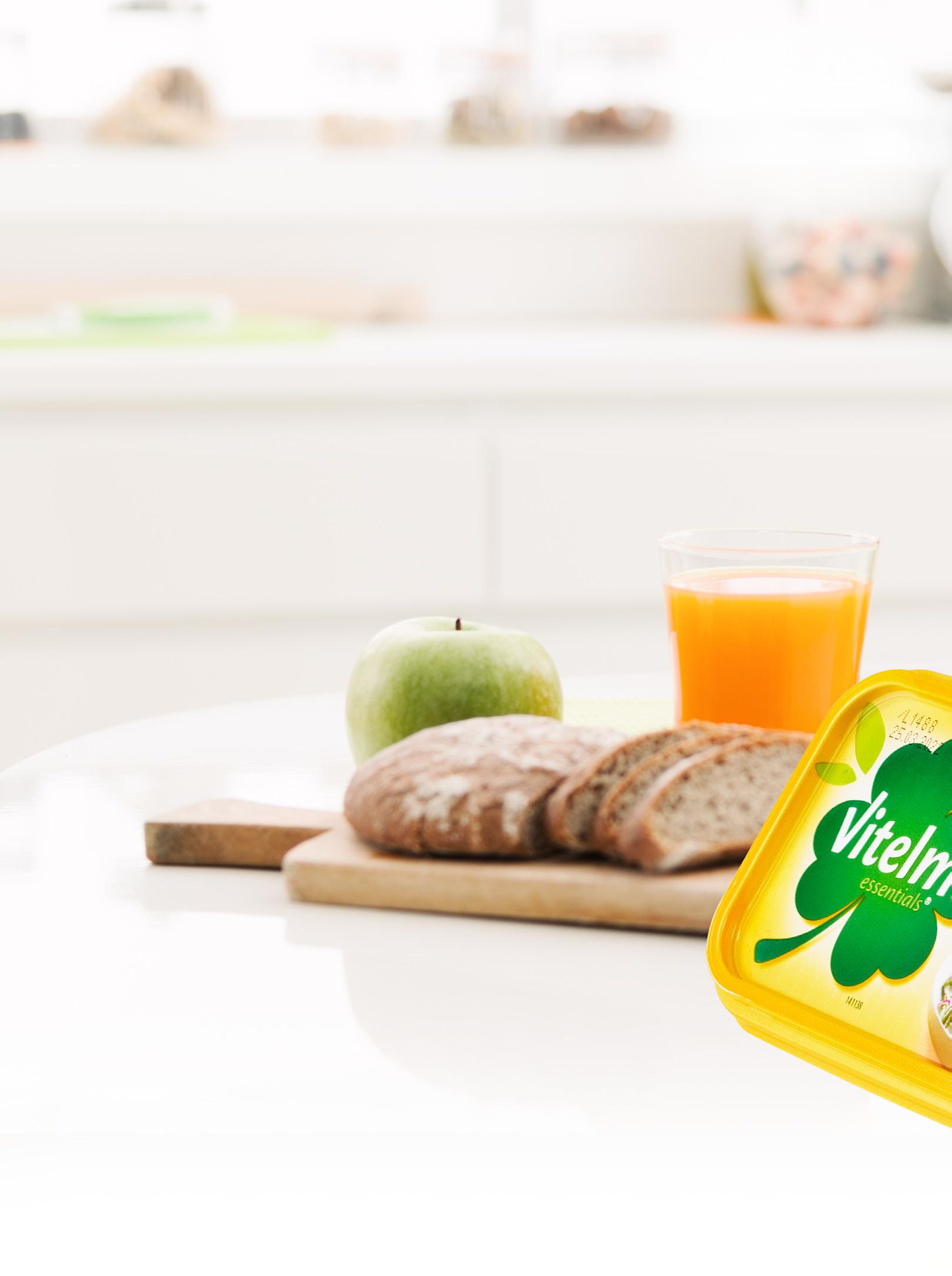
Testimonial 18
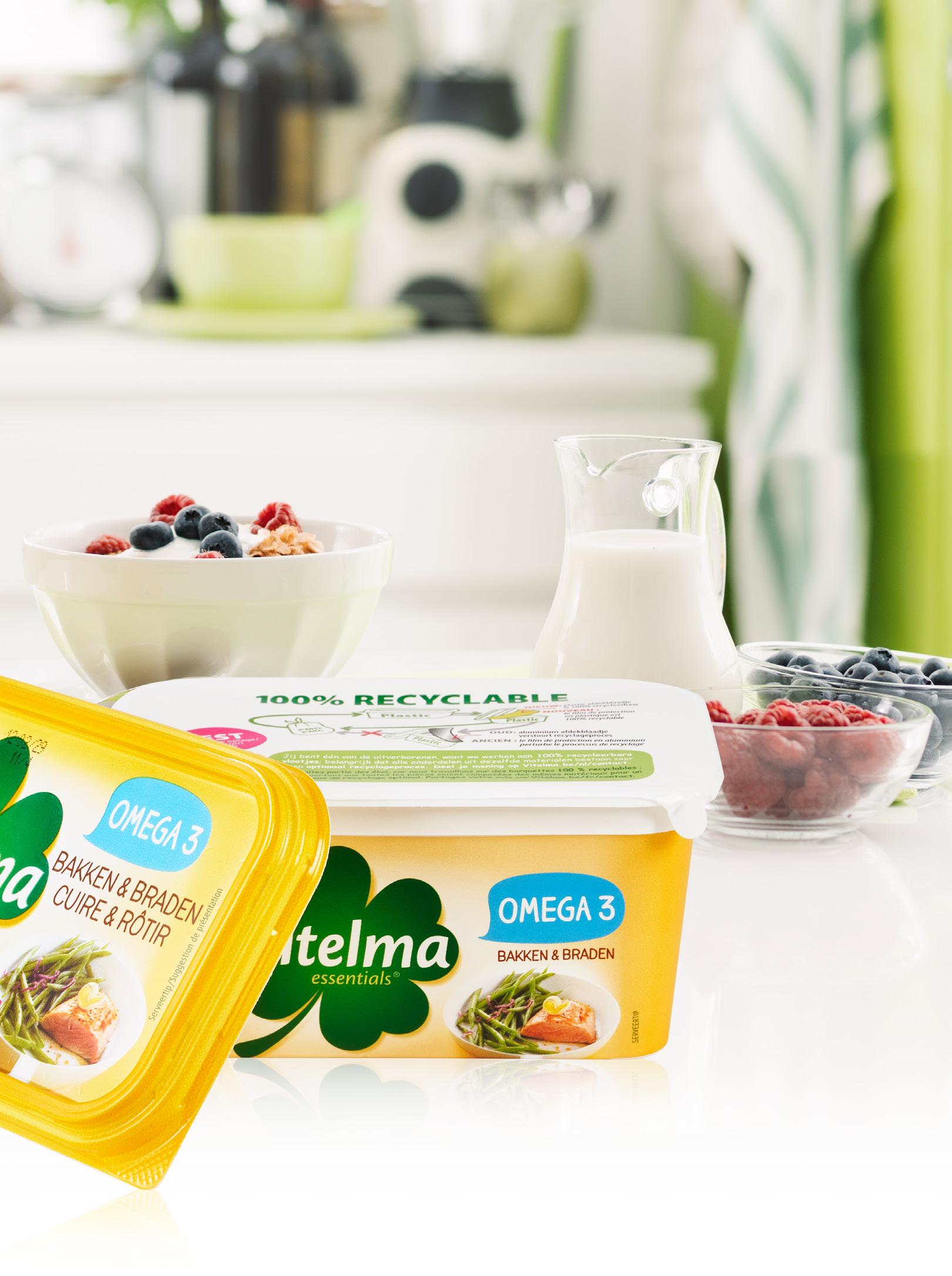
19
Up ‘til now, at Vandemoortele, you opted for an aluminum seal for your margarine tubs. What drove you to investigate the possibilities of SealPPeel instead?
Aurélie Comhaire: As part of our sustainability strategy, we aim for 100% recyclable packaging by 2025. Our customers, mostly retailers and private labels, have the same ambitions as well. We saw great potential in optimizing recyclability for our margarine range as today this packaging is made of multiple materials.

Mélissa Choy: Next to sustainability, we took into account feasibility and consumer convenience. We know from experience that features like hygiene and ease of use are very important factors in the buying decision for this market segment.
So we conducted a consumer research with 4 types of alternative packaging: cardboard, our existing plastic tub and aluminum seal, the tub with SealPPeel, and a recycled plastic tub. We asked consumers about their opinion on the recyclability and their buying Intention. Our test panel perceived the cardboard tub as most sustainable, but they would not buy it. Margarine is a commodity product, and cardboard just didn’t make the cut from a convenience perspective. Also product quality was perceived lower. At the same time, we saw that the buying intention for the tub with SealPPeel was much higher, because people understood the recyclability. From a sustainability as well as the convenience point of view, SealPPeel came out the winner.
From a recycler point of view and In Circpack’s experience, can you agree with Vandemoortele’s material switch?
Vincent Mooij: For rigid as well as flexible packaging, switching to mono-material is a major trend. From a circularity as well as a recyclability perspective, a monomaterial packaging indeed is much easier to sort and reprocess than a combination of materials.

When a multiple material packaging enters the waste, very often the materials are not separated. For example, one of the biggest issues for aluminum seals is that parts of the aluminum remain attached to the PP. In recycling facilities there are processes that filter these particles out, but with that we lose valuable PP. If the aluminum wouldn’t be filtered out, it would be part of the melted polypropylene, which would case blockages in extrusion lines. An unwanted scenario, that goes without saying.
Brand owners and the packaging industry put a lot of effort in creating more sustainable packaging. When every industry player reaches its sustainability goals, will there still be room to improve?
Aurélie: It’s not a story of black or white. The biggest challenge is to define what the most sustainable packaging is, because it is product dependent and has to do with perception, scientific proof (or lack thereof), local recyclability legislation, and so many other things. We are taking major steps, but as a brand owner I think we have to keep challenging ourselves to improve.
Vincent: Indeed, and we have to look further than packaging as well. Because a lot of a product’s footprint comes from other features besides packaging: the product itself, its Ingredients and production process, transportation, ... etc.
Overall, for packaging producers it’s about protection of the product and ensuring a relevant shelf life in the most sustainable way. More and more is feasible at this point, and new alternatives make their entrance. We are getting there but we can also still take steps.
Vincent Mooij Director of CIRCPACK® by Veolia
Stijn Quintyn: At MCC Verstraete, we are convinced that we have to do our part in our industry. We are in packaging decoration and we contribute in monomaterial solutions for our customers. We produce these label solutions in CO2 neutral facilities. The product itself is beyond our control - but here we can also play our part by solutions such as Barrier IML. If every company within the value chain plays its part, we will get a long way.
Who Is Vandemoortele?
Vandemoortele is a Belgian family enterprise founded in 1899. The company has two business lines; one in bakery products and the other in margarine, culinary oils, and fats. It has grown to be an international food company with a leading position in Europe. Vandemoortele has its own brands, but most of its products are marketed as private labels. Amongst its customers are supermarkets, restaurants, and food industries.
Mélissa Choy International Marketing Manager at Vandemoortele
Testimonial 20
Who Is Circpack?
SUEZ.circpack® increases the recyclability of packaging. It offers consultancy services on recycling to brand owners, retailers and packaging companies. The services range from Online MasterClasses to dedicated advice and from certification to laboratory tests. SUEZ.circpack® has broad international knowledge on the local situation of waste management in 68(!) countries worldwide. On top of this, SUEZ.circpack® is an accredited certifying body for RecyClass™.
attractive and qualitative, which benefits the product image as packaging is a representation of the quality inside. Secondly, and perhaps quite specific for the margarine segment: aluminum rips very easily which annoys consumers. SealPPeel just doesn’t rip. It helps us sell the product from sustainability as well as consumer convenience point of view.
What was your experience in working together with MCC Verstraete during the development?
Mélissa: We had a productive cooperation, one of true partnership. There was a lot of understanding from both sides, for example when we needed time to develop and Introduce things. We had been trying to introduce similar innovations for a long time so we were very happy that SealPPeel succeeded and that we have this on the market!

Aurélie: Collaboration between different partners in the industry is key. In a perfect scenario, all parties need to have the same vision for the future.
Vincent: And in order for everyone to play his or her part in the best way, understanding the value chain is crucial.
You recently launched a first packaging using SealPPeel, how does the market react?
Mélissa: Extremely positive, to say the least. Our key account retailers are proactively asking for this Innovation, they are really proud of this achievement. Based on our consumer research, we expect the same from the end customer.
What other assets of SealPPeel stand out for you?
Mélissa: Next to the sustainability aspect, two striking things stand out. First of all, the artwork is much more
Stijn: I can only agree. We had to define new process parameters, implement equipment changes and run a lot of tests but we always had a mutual goal and mindset during the process. We were aligned on all levels: from implementation to marketing, sustainability, etc.
How strongly do you believe in SealPPeel for other markets as well?
Stijn: SealPPeel is valid for every product that goes into rigid packaging. I strongly believe SealPPeel will become the industry standard in the years to come. Next to the sustainability aspect it offers so many other benefits; shelf appeal for example is of a different level! Or the high puncture resistance, very advantageous for products that are sold through e-commerce. There’s still a lot of undiscovered market potential - think about how SealPPeel would improve sustainable packaging In the yogurt market!
Stijn Quintyn Product Manager SealPPeel at MCC Verstraete
Watch our video and discover all aspects of SealPPeel
 Aurélie Comhaire Group Sustainability Manager at Vandemoortele
Aurélie Comhaire Group Sustainability Manager at Vandemoortele
“ For rigid as well as flexible packaging, switching to mono-material is a major trend.” Vincent Mooij, Director of SUEZ.circpack
21
Creating sustainable packaging with
SealPPeel
Interview with Machinery Manufacturer Syntegon
Syntegon has implemented MCC Verstraete’s SealPPeel die-cut lidding solution on its new LFS filling machines for preformed cups for dairy and other liquid foods. Here, Ilona Junkers, Project Manager for Sustainable Solutions at Syntegon, and Stijn Quintyn, Product Manager for SealPPeel at MCC Verstraete, discuss this innovative project.

Interview
22
What is Syntegon’s vision for sustainable packaging?
Ilona Junkers: Syntegon’s aim is to provide intelligent and sustainable solutions for everyone. We deliver packaging technology that can process eco-friendly materials such as mono-material, paper or biodegradables, bioplastic and other biobased solutions.
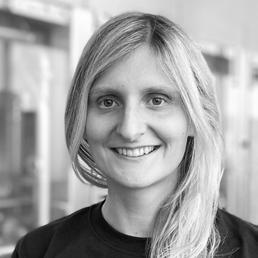
We focus on minimizing resource consumption across the board, both for the end application and in the machines we build. We support customers on their sustainability journey – from design and initial material testing to final machine application and beyond, so they can meet requirements and regulations in the different regions.
What are the main packaging drivers in the dairy industry?
Ilona: There are four main drivers in the dairy packaging industry. First of all, of course costs, because dairy is a very price-sensitive market, so customers are highly conscious of margins and productivity. This is closely connected with the second driver, which is machine efficiency. A third driver is consumer behavior. If the consumer likes the packaging solution, our customers sell more products. We work with them to optimize opportunities. Finally, sustainability, especially if it means that consumers will buy more of the product because of a sustainable look, touch and feel or because it is a real sustainable solution.
Stijn Quintyn: By 2025, we should see the impact of Modulated Extended Producer Responsibility (EPR), which will hold the producer accountable for the entire lifecycle of the product, meaning some packaging could be taxed higher or other lower. Do you think this will help in the push towards more real sustainable options instead of greenwashing?

Ilona: Yes, regulations are also a driver. If the price increases for unsustainable solutions, total cost of ownership (TCO) will be in favor of more environmentally friendly options.
Could you explain the aim of the project?
Ilona: The aim of the project is to produce a fully recyclable mono-material solution for liquid and viscous foods. Working closely with MCC Verstraete, we set out to create a packaging structure that the consumer can recycle without first having to separate the cup and the lid. By specifying SealPPeel polypropylene (PP) heat seal die-cut lids in combination with PP plastic tubs on our newly launched LFS and FCL UC filling machine, I’m pleased to say that we have achieved our goal and that the new solution is now in the market.
With SealPPeel on our new LFS, FCL UC lines and retrofit able old EVO machines, we can now offer a fully recyclable packaging solution as an alternative to aluminum lidding.
Stijn: Of course, a lot of the IML labels we produce at MCC Verstraete already end up on a Syntegon filling line at the converter, but now with SealPPeel, our recyclable PP lids for cups are part of the solution applied on Syntegon lines directly. This means the filler is ready to go with a sustainable packaging, and which is more economical, compared to aluminum lidding.
And how was it accomplished?
Ilona: I would say it is the combination of our two innovations that has made this project a great success. Our new LFS and FCL UC filling machine concept, which has been designed for a wide variety of liquid and viscous products for clean and ultra-clean applications works well with the SealPPeel lids and that has opened up a much wider market.
Initially, we sent the construction for evaluation with several recycling companies and it came back with top scores, so that gave us the impetus and also the focus to look into this innovative packaging material.
What are the main advantages of SealPPeel?
Ilona: First of all, the look of the SealPPeel lids themselves. The feedback from our marketing team was incredibly positive, they thought the solution was excellent with great branding opportunities. We love the fact that they can be printed in offset quality without affecting the performance.
Secondly, the silicone sealing technique is very efficient on the production line, and it has good peel force, which is also a crucial part of the innovation. The seal performs much better than other PP mono-material
Stijn Quintyn Product Manager SealPPeel at MCC Verstraete
Ilona Junkers Project Manager for Sustainable Solutions at Syntegon
“
The seal performs much better than other PP monomaterial solutions we have investigated and that benefits consumers directly because of the convenience.”
Ilona Junkers, Project Manager for sustainable solutions at Syntegon
23
solutions we have investigated, and that benefits consumers directly because of the convenience.
It is very important for us as a machine supplier that we can give our customers the security that if they change from aluminium to PP. The product security is not compromised, and the shelf life is not affected for the products we have produced so far with the new PP lid solution. We have achieved that with this project.
How do you see the future of SealPPeel?
Ilona: I think the future is very bright for SealPPeel because it can help alleviate problems with supply of aluminum – we see a shortage worldwide. As a mono-material solution, it will also enable brands to better comply with existing and new regulations regarding the circular economy. I have no doubt that we will see a growing demand.
There is also a big opportunity for our customers to use the solution in more market segments. The LFS filling machine is suitable for many other products in addition to dairy, such as deli foods, on-the-go and plant-based foods, dips, sauces, soups, etc. With SealPPeel die-cut lids on the machine, we can now address all those markets with a sustainable solution.
Why did Syntegon choose to work with MCC Verstraete?
Ilona: We worked with MCC Verstraete because the company is well known for its IML technique, so we knew the team is experienced in handling PP, which can be a very difficult material to process.
The cooperation during the development has been very close with great communication at every step. Our discussions around what we wanted to accomplish and what was feasible were very productive and we did a lot of testing to come up with the optimal product. Now that SealPPeel is on the market, we continue the close cooperation, especially when dealing with customer queries and new requests.
Is it a benefit that both companies operate globally?
Ilona: Yes, it’s a major benefit for our customers that we are both global players, because they know that we can supply machines and materials locally. For instance, in the US where we expect more growth, we
because when you start a SealPPeel project, the partners involved need to work as a trinity with the filler, who needs a lot of information, the filling line manufacturer, so Syntegon in this case, and ourselves, as the lidding producer. Those three parties have to work together very closely, so if they all work in an international context that makes the rollout smoother.
And will there be more joint projects?
Ilona: I certainly think so, because there are so many great solutions coming to market from MCC Verstraete, such as Molded Fiber Labeling™ (MFL), which is another unique sustainability driven project. There is a lot of innovation happening at MCC that fits really well with our strategy.
Stijn: Our companies share the same vision about what sustainable packaging should look like. We are both firm believers in mono-material packaging, and MCC offers both mono-material PP and mono-material fiber solutions, so I think that combination will for sure lead to more cooperation in the future.

Who is Syntegon?
Syntegon has over 160 years of experience in manufacturing machinery for the global pharmaceutical and food industries. As a partner for processing and packaging technology, the company makes individual machines and automated packaging systems and services as well as setting standards in packaging with innovative and tailor-made solutions for reliable production processes and high-quality results.
Interview 24

Become an IML-expert • All IML knowledge bundled in one place, available 24/7 • Offering all kinds of tools: whitepapers, educational videos, magazines, ... etc. Visit our knowledge center and become an IML expert yourself!
Molded Fiber Labeling
A sustainable label offering by MCC Verstraete



Innovation 26
Transitioning to a circular economy and driven by legislation, ever increasing taxes, pledges and consumers calling loudly for more sustainable packaging, the packaging landscape is undergoing a vast evolution.

New packaging and packaging materials are being developed to respond to the needs of brand owners that are reviewing the design of their current and future packaging. Among these new packaging materials, molded fiber catches the attention as having a lot of potential in the FMCG market.
Fiber molded packaging is often referred to as ‘plastic free’. To live up to this claim, it’s important to have label decoration of the same material. After all,



the aim is to keep the decorated mono-material fiber packaging fully recyclable and/or compostable.


Based on our 30 years of experience in decorating PP and HDPE IML packaging with in mold labels, we developed a specific MFL™ label for this new type of packaging. Offering all the advantages known by IML, in combination with our proven quality level for FMCG packaging. MFL™, a perfect marriage between IML and Molded Fibers!


27
Sustainability Built Into Every Fiber
As Molded Fiber Labeling™ (MFL) – a new breakthrough technology for the ultimate in sustainable packaging – prepares to hit the market, we talk to some partners involved in this trailblazing project.





Innovation
28
Sanna Fager Chief Commercial Officer at PulPac
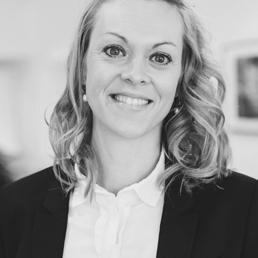
What is your company’s role in the project?
Sanna Fager: PulPac has invented Dry Molded Fiber, a manufacturing method of cellulose molding for producing low-cost, high-performance fiber-based packaging and single-use items. This groundbreaking technology forms the basis for the MFL™ project. We license it to packaging manufacturer partners, in this case Hébert Group. They set up their own production in cooperation with specialized machine suppliers, and develop applications for their customer.
Romain Hervé: We have seen rapid growth in the molded fiber packaging market, and it is an area that we are investing a lot of time and effort in, with new patented decoration technology. Our modular MFL™ machine platform can be configured from a single station for prototyping or pre-production to a full system with multiple stations for high volume production, either as standalone or in-line with the forming machine. The technology ensures perfect fusing of the MFL™ labels to the product surface and is flexible enough to handle many different shapes on the same line.
Julien Hébert: Hébert Group introduced the In-Mold-Labeling process early in the 80’s. 40 years later, our team is thrilled to again play a pioneering role by joining forces with our historical partners, Pagès Group and MCC Verstraete, to leverage the full potential of the dry molding technology owned by Pulpac. Through Herpulp, a new and dedicated business unit, we have worked closely with PulPac and are now in the process of setting-up the new PU300 Modula platform for Dry Fiber Molding. It will be combined with an automated Molded Fiber Labeling™ machine from Pagès Group which will apply the printed MFL™ labels from MCC Verstraete, as we ramp up with a full production line to manufacture 100% fiber-based packaging solutions for our customers.
Nico Van de Walle: MCC Verstraete has used its unrivaled IML experience and expertise to develop unique paper-based MFL™ labels that can be used to decorate both wet and dry molded fiber packaging. MFL™ labels enable strong fusion with the fiber molded packaging without the use of adhesives, and we print them offset with high resolution graphics to deliver packaging with exceptional shelf standout.
What are the main advantages of MFL™?
Sanna: Brands and consumers want greener options with great look and feel, but they don’t
necessarily want to pay extra for them. As PulPac’s Dry Molded Fiber technology is up to 10 times faster than traditional fiber forming methods and makes it possible to fuse the MFL™ label to the product inline in one sequence. Overall, there are some highly competitive economics in the mix, in addition to the crucial sustainability aspect.
Romain: MFL™ offers a winning combination of highquality printing, sustainability, and competitiveness, which will answer many brands’ demands for greener solutions. This world premiere automated solution allows you to decorate fiber molded containers for stunning looking packaging that brand owners will be proud to put on shelf.
Julien: Maximum print quality, recyclability, quick design changeovers and cost efficiency are among the key benefits of the IML technology that is today well established within the plastic industry. And this will be no different with MFL™. Combining each party know-how and technological edge will enable the emergence of MFL™ as a technically new and truly competitive way to decorate paper-based solution that meets both market expectations and environmental regulations.
Nico: Because the packaging with the glue-free MFL™ label consist of compatible fiber materials, the whole pack can be recycled or composted as one unit. The MFL™ labels are able to resist humidity and big temperature fluctuations, making them suitable for all types of food applications, including chilled and frozen. They adhere perfectly to the fiber material, so they are not susceptible to creasing or air bubbles.
How does it compare to other solutions?
Sanna: When focusing on the molding process, our unique and patented technology is based on a dry process. Besides saving significant amounts of water and energy, CO2 emissions are up to 80% lower than
Who is PulPac?
PulPac is based in Sweden, and developes sustainable and cost-effective alternatives to single-use plastics. More precisely, the company is pioneering cellulose molding to help accelerate the global shift away from plastic containers and other plastic products. Their vision is to replace more than 1 million tons of plastics by 2025, that’s around 1% of annual packaging production.
29
alternatives. In addition, output is up to 10 times faster and matches conventional packs, resulting in very competitive unit economics. That enables replacement of single-use plastics at scale.
Romain: In terms of decoration methods, alternatives would be either direct to object (inkjet) printing or applying self-adhesive labels, which can present problems in regard to print quality, speed of production and sustainability of the packs. Direct to object does not offer the high quality of offset printed IML, and if you introduce adhesive into the construction, the compostability and recyclability are negatively affected.
Julien: Our aim is to offer to the market products that are decoupled from fossil resources and fully recyclable. MFL™ applications can meet both requirements and the fact it is a one-step process makes it more cost effective that many alternatives. We trust that our experience and our technical expertise that have been consolidated through injection molding can now benefit to dry fiber molding, making MFL™ the preferred decoration technique for FMCG companies in the years to come.
Will fiber-based packaging and MFL™ be a success?
Sanna: It already is a success, and it is growing fast. In fact, a recent study from Smithers Pira states that by 2040 consumers won’t tolerate a choice between sustainability and convenience, they will expect both
Who is Pagès Group?
Pagès Group is a global innovation leader in machine automation for packaging decoration for the consumer, industrial and medical sectors. The company has provided downstream solutions for the pulp packaging market for many years and has over 30 years of experience in handling in mold labeling, which is their main focus.
– and that fiber-based packaging will be perceived as the most sustainable solution. We are working with many different partners who share our holistic view on sustainability and efficient use of resources. The end goal is to establish Dry Molded Fiber as a new world standard for fiber-based packaging.



Romain: The reaction from the market is a clear sign that there is an appetite for decorated fiberbased packaging. We have made a fantastic start with MFL™ and are now working on the next level, such as handling and labelling round shapes. We have already made a prototype for round packs and is now building the pilot line. The demand is certainly there, so we continue to innovate in this space.
Romain Hervé Business Development Director at Pagès Group
Julien: The development and the manufacturing of bespoke solutions is our core business. From all the market insights we have gathered, the idea of combining the IML technology with the dry molded fiber one is a promising answer to address some key expectations in terms of sustainability. We believe

“
From all the market insights we have gathered, the idea of combining the IML technology with the dry molded fiber one is a promising answer to address some key expectations in terms of sustainability.”
Julien Hébert, Technical and Sales Director at Hébert Group
30
Who is Hébert Group?
Hébert Group is a family-owned company based in France with an expertise in the development and the manufacturing of tailored packaging solutions for the food and cosmetic markets. The company has been supporting key FMCG companies in the large-scale industrialization of some of the most iconic designs in the packaging industry. While injection molding is Herplast specialty, Herpulp has been launched in 2022 and focuses on the molding of fiber-based items. Herplast and Herpulp will operate as two complementary business units.
that our new development has a strong future as it contributes to the circular economy while still being a high quality and cost-effective solution.
Nico: Although I’m also a strong believer in sustainable plastic IML packaging, being sustainable in its own right when recycled responsibly, I do also see a bright future for molded fiber MFL™ packaging. This is mainly driven by the EU single-use plastics directive and by the quest brand owners have to reduce the amount of plastic packaging material they use.
Our vision is that the final packaging, decorated with one of our labels, no matter if it’s IML or MFL™ , should stay at all time, recyclable, reusable or compostable. In this spirit and supported with over 30 years of experience in IML, we believe in a bright future for both IML and MFL™ packaging.

Is there scope to take the MFL™ project global?
Sanna: PulPac has aimed to be global from start. Our technology is patented worldwide and made available to converters through licensing to accelerate global spread and make impact at scale. By collaborating with the industry, we can help transform it from within –in just a few years. We are building a community for Dry Molded Fiber, a global value chain of industry leaders within application development, tooling, material, barriers, machinery and know-how, supporting the converters who make the shift. A shift that in the end will help save our planet from plastics.
Romain: Pagès Group operates worldwide and has over 3000+ systems in the market for various industries. We export to over 45 countries and have experts in place globally, meaning we can support local customers no matters where they are based if they want to explore the opportunities in Molded Fiber Labeling™.

Nico: MCC Verstraete is part of the global MCC Group and we have four local production units and technical support from five locations around the globe. Having that worldwide presence allows us to respond faster as we don’t have to rely heavily on fragile supply chains. In this instance, it means the MFL™ project can be implemented in other parts of the world, because we can supply labels quickly.
How was the experience of working with MCC Verstraete?
Sanna: For this project to be a success, we needed an expert who was willing to push the boundaries of IML technology. MCC Verstraete has been integral to developing MFL™, and they have been very flexible and open to work with.
Romain: It was a great collaboration. MCC Verstraete is definitely a very responsive partner, which was crucial for the project to succeed. They were able to deliver new materials for testing on our line very quickly and their technical support was key in the development of the label handling and application.
Julien: Like ourselves, MCC Verstraete has been active in IML since the very beginning, so there is a great synergy and understanding between our companies. This has been very evident throughout the MFL™ project
Nico Van de Walle Product & Circular Economy Manager at MCC Verstraete
31
Organic fertilizer buckets get a natural look with IML
Kekkilä-BVB is one of Europe’s leading manufacturers of growing substrates, fertilizers and other garden products. To market a new range of 100% organic fertilizers for its Hasselfors Garden business in Sweden, the company looked for packaging that would accurately match the green credentials of the product. The solution was a bucket with lid and handle made entirely from Post-Consumer Recycled (PCR) plastic, decorated with recyclable IML labels from MCC Verstraete.

Customer case
32
Using PCR plastic in packaging is a great way to meet sustainability targets, but high levels of PCR content can impose limitations on the color choice and the color consistency from batch to batch. To ensure the best result for its organic fertilizer launch, Kekkilä-BVB pulled in the support of Netherlands-based injection molding specialist Dijkstra Plastics and IML expert MCC Verstraete to develop a series of square buckets with PP IML labels.
“Kekkilä-BVB chose an environmentally friendly cappuccino-colored bucket made from 100% recycled material that not only measures up to those made from virgin material in terms of strength and quality but also looks great on shelf with color consistency across the range and high-quality printed graphics,” said Remco Meijer, Area Sales Manager at Dijkstra Plastics. “The PCR bucket fulfils the wish to lessen the impact on the environment without compromising on style and substance. This is a beautiful solution on every level.”
Durable high-quality decoration
Once the bucket material had been decided upon, the next step was decoration. Kekkilä-BVB wanted a natural look and artisanal feel to reflect the ‘100% organic’ element, but also needed to convey the high product quality as well as ensure the durability of the labels to protect the brand integrity.
In mold labels (IML) offers the best solution for rigid plastic containers as they are heat, humidity and scratch resistant, and won’t crack or wrinkle. And because the plastic label is fully fused with the container and printed with offset quality graphics, the product looks great not only on the store shelf, but all the way into the home – and in this case, the garden.
For the Hasselfors Garden fertilizer range, MCC Verstraete supplied IML decoration to complement the brown color of the 3 -and 10-liter buckets. Designed to appear slightly textured, like untreated kraft paper or cardboard, the labels were printed on standard PP coated with a protective varnish. They also feature

bright colors and crisp clear text on all sides of the bucket itself and on the lid, with dependable color consistency guaranteed for both long runs and multiple SKUs.
Green partnerships for success
Finding project partners that shared the same sustainability goals was important for Kekkilä-BVB. This rang true for MCC Verstraete, which is a pioneer within the MCC Group and the wider industry due to its strong dedication to continual improvement of its environmental credentials. Through a series of green initiatives, the two Belgian production sites have reduced their overall carbon footprint to zero and have been awarded the carbon neutral certificate by an independent third party.
“That fact that all our injection molding labels are produced in a CO2 neutral environment was crucial for Kekkilä-BVB because they wanted every aspect of the project to be as green as possible,” said Stijn Quintyn, Regional Sales Manager Europe at MCC Verstraete. “While some brand owners only pay lip service to sustainability, Kekkilä-BVB has taken a holistic approach with these products and included the whole packaging production process in its analysis for the best possible outcome.”
“ The PCR bucket fullfils the wish to lessen the impact on the environment without compromising on style and substance.”
Remco Meijer, Area Sales Manager at Dijkstra Plastics
“ That fact that all our injection molding labels are produced in a CO2 neutral environment was crucial for Kekkilä-BVB because they wanted every aspect of the project to be as green as possible.”
Stijn Quintyn, Regional Sales Manager Europe at MCC Verstraete
33
Metallic IML adds sparkle to Kware’s new royal icing range


Kware has been in business since 1978 and is the leading wholesale supplier in Australia for all types of cake ingredients and baking equipment. Selling to retailers, shops, and cake makers throughout the Asia Pacific region and beyond, the successful company is known for its innovative cake decoration products. For the latest product launch, Kware worked with MCC Verstraete to bring standout appeal to its new packaging using Metallic IML.

Customer case 34
Expanding possibilities with metallic icing Cake making has become extremely popular in recent years. Many budding entrepreneurs have set up shop to offer intricately decorated professional creations. As these customers seek more extravagant ideas to satisfy the demand for exceptional cakes, the market for new decoration products is booming.
Kware’s ‘Over the Top’ (OTT) product range is already extremely popular. It includes a multitude of colors in buttercream and fondant icing along with a large variety of edible items for high-impact cake decoration with extra bling. The company recently expanded the OTT range with new metallic royal icing mixes in five colors – Classic Gold, Classic Silver, Pearl White, Regal Gold, and Rose Gold – designed to make it even easier to achieve a metallic finish on cakes.
Curious to feel and touch this label? Open your sample pack and experience it with your own eyes.
Going over the top with Metallic IML
To bring the new metallic icing to market, Kware chose clear injection molded plastic tubs decorated with transparent injection molding IML from MCC Verstraete, which were converted by the Adelaidebased packaging manufacturer Techno Plas. This highquality packaging construction is quick to produce and excellent for preserving edible products. Kware has used this packaging style successfully for many other products, however, this was the first time they would introduce the metallic finishes for the IML labels.
“We had never ventured into metallic-looking tubs before, so this was exciting in terms of the increased shelf appeal and response to the product in general,” says Susan Eversmann-Johanns, marketing and communication at Kware.
To find the perfect metallic color for the labels, Kware’s packaging development team worked closely with the ink lab at MCC Verstraete. This was a real challenge because the printed labels had to accurately match the color of each icing mix. However, using Metallic IMLFOIL from MCC Verstraete meant that the cake decoration specialist was able to create a sparkly finish in shades that reflected the contents.
“The transparency of the tubs is an important aspect of the packaging because it allows customers to view the product inside. But with clear tubs, the label artwork needs to be matched as closely as possible to the actual product, so we sent MCC Verstraete samples of the powder mix for the ink lab to work from. And it was worth the extra effort – we are very impressed with the color matching and the results look great,” exclaims Susan.
“Providing our customers with the best possible service is our primary goal, especially when it comes to finding that one right tint. That’s what our daily operation is all about,” adds Arne Weewauters, Color Management Officer at MCC Verstraete.
Successful cooperation with Label Upgrades Metallic IMLFOIL from MCC Verstraete opens a whole new world of possibilities to help brands shine in a crowded space and elevate the perceived value of the product inside. This Label Upgrade is a very costeffective and sustainable way to create metallic effects that add luxury appeal and draw in the attention of the consumer. The technique has also allowed many brands to move from metal packaging to monomaterial IML which is a more sustainable solution, being fully recyclable.

For Kware, the cooperation with MCC Verstraete has been a great experience. “The service that MCC Verstraete provides is first class, which is why we continue to work with the company. Naturally, the appearance of our products is paramount, and we know that we can depend on them to produce outstanding labels,” Susan concludes. “Our new royal icing products have been very well received and the Metallic IML packaging make them look absolutely amazing. They really do stand out on shelf.”
Discover how Metallic IML can spice up your brand

“ Our new royal icing products have been very well received and the Metallic IML packaging make them look absolutely amazing.”
Susan Eversmann-Johanns, marketing and communication at Kware
35

Digital Printing 36
IML and digital printing: The perfect match
Digital printing opens many new doors, including for MCC Verstraete, as this fairly new technology brings with it a variety of opportunities and possibilities. What can MCC Verstraete offer you as a brand owner when it comes to digital printing? We sat down with three key MCC figures to talk about the numerous benefits that digital printing delivers.
What is the current status when talking about MCC Verstraete and digital printing? Do you see a need from packaging converters or brand owners to print digitally and is MCC Verstraete ready to offer digitally printed labels?
Peter Grugeon Managing Director at MCC Verstraete

Peter Grugeon: Yes, last year we went in dialogue with a couple of our key customers and did a poll to check the interest in digital printing. The injection molders see a great opportunity with this printing technology because it creates completely new decoration possibilities. Digital print makes adding unique serial coding possible and this is of great interest to many injection molders and brand owners. We analyzed all the technical advantages of digital printing and are very proud to say that we are now capable of offering digitally printed IML labels to meet our customers’ needs.
Michiel Kerckenaere: Indeed, we are ready to get started. The labels will be digitally printed in one of our MCC sister plants and as for the finishing technologies, we are currently implementing those at our headquarter in Maldegem.
What are the unique features of Digital IML?
Rachel Tzirin: As digital printing is a plateless technology, the possibilities are really limitless.
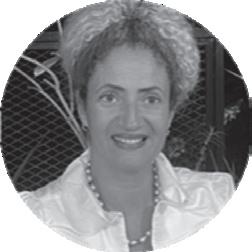
Each label can be completely different than the previous one. Different perspectives of the same pattern will be printed on the label. This printing technology is called mosaic. The HP Mosaic software crops, rotates, expands and mixes seed files to create randomized artwork patterns that produce a 100% unique label for each unit. With Digital IML and its mosaic feature, the IML packaging gets an amazing shelf appeal.
Michiel: Yes, the mosaic feature of digital printing creates many options and the impact on marketing possibilities is bigger than anything that can be done with conventional printing. Digital IML is a playground for brand marketers as it opens all kinds of unique ways for promotional campaigns, games or to make a pack a real collector’s item.
Rachel: Next to mosaic, digital printing offers the capability of adding unique coding on your label. This is one of the most attractive features for creative and innovative brands. By adding a unique coding you can get in interaction with your consumer. The packaging becomes a communication and marketing tool which allows the brand owners to engage with their consumers, just by scanning a QR code or Digimarc barcode.
Rachel Tzirin Global Director Digital Sales at MCC
37
Michiel: In the past, the label had mainly an informative function as it tells the consumer the brand, the flavor and the ingredients. But with Digital IML, the brand owner can add even more value to the package and the packaging becomes a completely new marketing tool. A package needs to be decorated anyway, so why not use the packaging as a marketing tool?
Does digital printing meet certain global demands or trends?

Michiel: One of the biggest trends among brand owners is connecting and engaging with the consumer. The gap between brand and consumer is getting smaller than ever. Nowadays, you can reach out to your consumer through social media and the possibility of adding unique codes facilitates this way of communication. Consumers hold the tangible product in their own hands and can interact directly with the brand. Talking about a great marketing tool!
Rachel: We see this trend not only with brand owners, but also among the consumers. If you want to target Gen Z or Millennials, you as a brand owner should fully commit to collaborating, connecting and sharing. That is the best way to approach your audience and Digital IML responds to this consumer need.
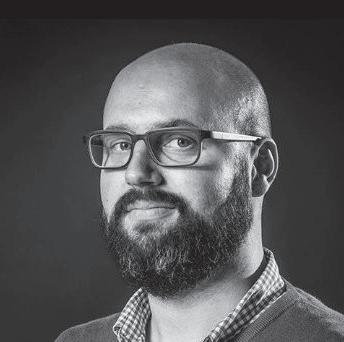
Are there other advantages by adding unique coding to the IML packaging?
Peter: Yes, this feature is not only a nice innovation to use in games or promotions, it is also a great way to
secure your label. Many brands are out to tackle the global threat of counterfeiting attacks. A combination of unique codes gives added protection, and if these codes are registered in a database, it allows tracking down to the item level. Brands can feel protected, and the consumer is sure that he has the authentic product. In certain countries, unique coding is mandatory by law and thanks to this feature we can easily respond to this need.
What about the printing quality and capabilities of Digital IML? Are there benefits compared to conventional printing?
Michiel: With digital printing the machine always runs in extended gamut Hexachrome system, which means that a large percentage of the pantone colors can be reproduced. Contrary to conventional printing, the number of colors during one print run is more flexible when printing digitally. Another big advantage of digital printing is the impeccable register printing. It allows stable printing of large screens and it facilitates to print microtext or other small marks, so small that they are almost impossible to detect with the human eye. This feature is ideal for anti-counterfeiting, as it is very hard to copy.
“
Brands can feel protected and the consumer is sure that he has the authentic product.”
Peter Grugeon, Managing Director at MCC Verstraete
Michiel Kerckenaere Project Manager Digital Printing at MCC Verstraete
Digital Printing 38
Michiel Kerckenaere, Project Manager Digital Printing at MCC Verstraete
Do you see digital printing also playing an important role for smaller brands, or is the focus more on bigger brands?
Michiel: Digital printing can add value to both, it doesn’t really limit itself to smaller or bigger brands. The main advantage of Digital IML is the uniqueness of each label and the marketing possibilities that come along with this. This attracts both small and large brands. However, it can be a nice way for a small brand to stand out against the bigger brands, without spending a big marketing budget as they can just work on their packaging.
Peter: Digital IML is actually for all brand owners that want to connect and start direct communication with their consumers. The size of the brand doesn’t really matter as any brand will benefit from this technology.
It is no secret that brand owners are looking for more sustainable packaging. How can Digital IML support this quest?
Michiel: We believe that Digital IML enables the reusability of a package. The brand owners have the
opportunity to encourage the reusability of an IML packaging by making the package unique and less common. In this way the consumer will be eager to reuse the package as a decorative storage box at home.

Talking about unique packaging; is personalized packaging possible with Digital IML?
Michiel: Personalized packaging is a challenge for IML, as our supply chain is too long and too complex. Between printing and filling the IML packaging, there is a high risk of having scrap. However, serialization is absolutely a nice possibility of Digital IML. Serialization means that there can exist different variations among the IML labels. For instance, the well-known Nutella campaign, where you can add your name of the Nutella jar. That is something that we’re able to offer with Digital IML.
Peter: We could as well support brand owners who want to organize campaigns or promotions linked to a certain event, such as summer break, Christmas or Olympic games. The marketing possibilities are endless.
“ Digital IML is a playground for brand marketers.”
39
Printing
Going Green with Digital
With Digital print’s plateless technology, there is no need for tooling costs. This not only saves brands on cost, but it also has advantages for the environment. Read on to discover more!
Why Sustainability Matters
Consumers today demand greater and more ardent responses from vendors on their sustainability efforts. Brands need to take the lead on seeking ways to lower their carbon footprint, reduce pollution and be responsible citizens of the world.

In response, brands are putting sustainability objectives at the top of their agenda and most companies have set goals around sustainability policies and printed materials. Digital printing is well placed to help reach these goals by reducing waste and lessening the environmental impact of printing.
75%
of Millennials & Gen Z only engage with brands that protect the Earth
Brands are responding to environmental legislation & stricter consumer demands
Governments are accelerating new sustainability regulations
The transition to a circular economy is driving change in packaging
Digital
40
Sustainability in printing

Whether environmental impacts are a driver for choosing digital printing from the outset or simply an add-on benefit downstream, digital printing offers clear advantages in this area.
Traditional printing has some environmental impacts throughout the process, including:
• Plate production
• Plate cleaning (including high water requirements)
• Disposal of plates after use
• Wasted packaging due to changes, outdated materials or printing more than needed.
With digital, you print only what you need, where and when you need it. From long runs and large inventories that may go unsold, to short-run, on-demand printing, it’s the nature of digital to make printing more sustainable. Advantages include:
• The ability to prevent and reduce waste because of the minimal print setup.
• Overall less material & energy usage by avoiding the need for plates/cylinders and its cleaning.
At MCC we aim to provide our customers with the most optimum label offering that is also going to provide the most sustainable solution. This is not only taking into account the label construction but also the way this is produced. We optimize our supply chain and production process, by maintaining a continuous
Stijn Billiet, Global Director of Sustainability at MCC
improvement approach in each facility globally. Where our aim is to reduce energy and water usage, as well as implementing waste reduction strategies. For lower volumes, digital printing is the perfect solution to provide a high quality label that is produced in a sustainable way. MCC has digital presses across the globe and the number is still increasing. MCC invests in presses that are designed to work as sustainable as possible and use water recycling in combination with green cooling systems. The last additions to our digital printing assets were even produced in a carbon neutral way.

Create efficiencies via short run printing • By integrating technology in supply chain • To lower costs and avoid minimum order quantities • Launch NPDs and better manage tail SKUs Amplify sustainability messaging via consumers • To accelerate sales • To strengthen consumer engagement via personalization
“ With its capacity for short runs and just-in-time production, digital print offers the opportunity to reduce scrap and waste, leading to a lower carbon footprint.
”
41 Want
to learn about more sustainable label solutions?
Request
our Sustainability Roadmap
MOO serves up premium yoghurt in sustainable IML packaging

Customer case
42
Co-founders of MOO Premium Foods, Mick and Sally Sanders, have been in the yoghurt business for a long time, selling delicious dairy products made from locally sourced Australian milk. Devoted to running a sustainable business, they have recently launched their Premium Yoghurt range in IML tubs made from Ocean Bound Plastic (OBP), an initiative that is aiming to save the equivalent of almost 1.3 million plastic bottles from entering the ocean this year.
The idea for packaging with a better environmental footprint began when Mick gave a talk at a local primary school. “I was prepared for the kids to ask questions about how yoghurt was made, but instead they quizzed me about what MOO was doing in terms of sustainability,” Mick shares. “Their passion for the environment and their knowledge took me by surprise, and although we were already doing our bit, I realised we had to up our game.”
Driving sustainable packaging innovation
Based northeast of Adelaide city centre in South Australia, MOO started out as a single fresh yoghurt retail shop in 2005. Since then, the company has grown, not only to become a leading premium yoghurt brand, but also a contract manufacturer of dairy and non-dairy products for local and international businesses.

Over the past two years, the MOO team has worked closely with MCC Verstraete and converter Techno Plas to develop new sustainable packaging made from 100% Ocean Bound Plastic. OBP generates an estimated 80% of all plastic marine litter and is defined as any abandoned plastic waste found within 50km of a coastline and ‘at risk of ending up in the ocean’.
“The first step was connecting with a Malaysian company which converts
OBP into food-grade plastic resin,” explains Mick. “But we wanted to go further than simply mixing in resin from reclaimed plastic, we wanted to drive packaging innovation and develop a solution that used 100% OBP. Furthermore, MCC Verstraete helped us combine the usage of OBP with the look and feel of a premium packaging.”
43
Supporting a circular economy

All five flavours of MOO’s Premium Yoghurt range – Strawberry, Vanilla Bean, Mango, Lemon, and Passionfruit, and the Greek Style natural yoghurt – are now sold in transparent injection molded OBP plastic tubs with in-mold labelling (IML) from MCC Verstraete, which were converted by Techno Plas. “We are proud to say that with these new tubs, made from 100% recycled plastic and being 100% recyclable, we are fully supporting a circular economy,” said Mick.
MOO and Techno Plas have a long association with MCC Verstraete and optimized the IML format to match the premium image of its yoghurts. “IML always presents a clean and professional finish on shelf,” says Mick. “And MCC Verstraete is known for making the best labels in the world. We have always trusted and relied on their professionalism and attention to detail for our products.”
“For us, it was also a pleasure being the label supplier for this unique, innovative, and sustainable packaging project,” adds Adam Stephens, Sales Manager Australia at MCC Verstraete. “We work very closely with Techno Plas and MOO, and we deeply appreciate their loyalty.”
Sustainability creates brand loyalty

The OBP project has been strongly supported by Woolworths Group, which stocks the yoghurts in supermarkets nationwide, but they can also be found in a wide range of independent retail outlets. Most recently, MOO has started exporting the yoghurts to Singapore and Hong Kong, with more opportunities opening in other countries.
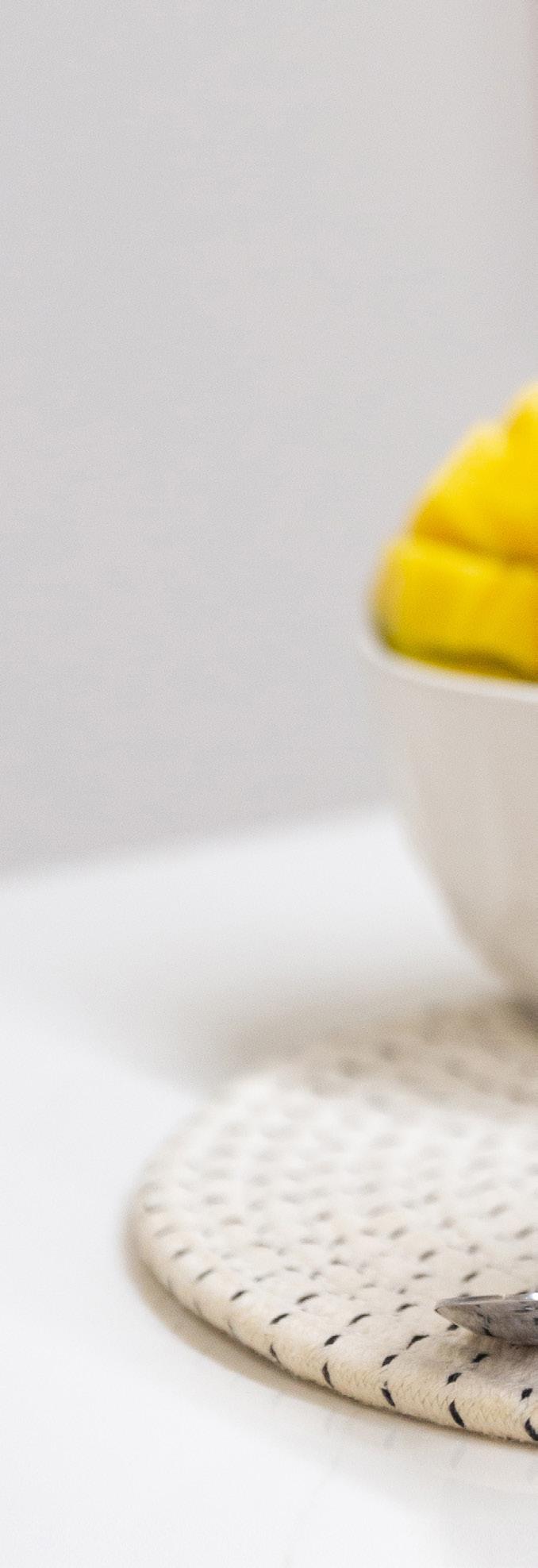
Mick says, “This concept is a first in Australia for food packaging and it has definitely created a stronger loyalty towards the MOO brand. People really want to help the environment, and even buying a small tub of MOO yoghurt will help save the equivalent of nine plastic bottle caps from ending up on beaches or in our waterways.”
He concludes, “Thanks to the fantastic cooperation with MCC Verstraete and Techno Plas, who supported our dream with their technical knowhow and experience, we are leading the way in sustainable packaging, and really making a difference.”
Curious to feel and touch this label? Open your sample pack and experience it with your own eyes.
“ We are proud to say that with these new tubs, made from 100% recycled plastic and being 100% recyclable, we are fully supporting a circular economy.”
Mick Sanders, Co-founder of MOO Premium Foods
Customer case
44

45
Versatile IML labels for Keter’s Dashing Deco Boxes
For more than 70 years, Curver has been an international and experienced player specialized in the production and sales of a full range of home products produced out of plastic. Curver, the brand of the home category behind the Keter group, chose IML labels as the decoration technique for their stylish, practical, and durable Deco boxes.







Think outside the box Keter is well-loved for its picture-perfect patterns, and its creative team is best in class when it comes to designing new, original and creative designs. “We don’t tend to use stock images, our creative team comes up with the ideas all by themselves, which makes our IML-decorated Deco boxes very unique on the market”, tells Gigliola Tonello, Marketing Manager Italy & Customization EU at Keter.

The versatility of IML labels meets Keter’s creativity
To differentiate themselves from the competition and stand out on display, and persuade the consumer in just a few seconds, Keter regularly comes up with new and refreshing designs. “On the one hand, we closely monitor the future consumers trends as these enable us to engage with our customers at a higher level. Keeping an eye on the colors of the year, top topicals, the season, certain events like Christmas time and
Customer case
46
Back to School are some of the examples on how we gain insights in consumers’ behavior and lifestyle. On the other hand, the target group also plays a crucial factor on the designs. Obviously, we develop different patterns for children than for adults,” says Gigliola.

Being a decoration technique that enables Keter to be versatile, that is the biggest reason why Keter opted for IML labels. Since Keter often needs to respond to consumer trends at a fast pace, a decoration technique that is capable of quick design changeovers was a must-have. “With IML it is possible to transform the box, every single time, just by changing only the IML label. On top of that, the team of our label supplier, MCC Verstraete, also ensures a very good collaboration and a smooth label process,” explains Gigliola.
Upcoming trend: sustainable IML Deco Boxes

Thinking about our planet is at the top of Keter’s agenda. Keter doesn’t just stop at words, but effectively carries out actions. That’s why they have set some sustainability goals. One of the main goals is to be able to offer Deco boxes in recycled material by 2025. “Currently we are working on finding ways to combine recycled Deco boxes with IML labels,” tells Gigliola.
“We as well are constantly looking for sustainable IML solutions and I am convinced that together we will achieve this,” Benedict Adins, Regional Sales Manager Europe at MCC Verstraete.
Gigliola Tonello, Marketing Manager Italy & Customization EU at Keter
“ With IML it is possible to transform the box, every single time, just by changing only the IML label.”
47
Compostable Garden Pots Feed the Circular Economy


Garden pots made from a material that feeds plants while slowly disintegrating when put in the ground is the brainchild of American serial innovator Danny Mishek. His sustainable materials manufacturing company, SelfEco Garden, has developed a range of plant-based containers, decorated with IndustrialCompostable IML labels from MCC Verstraete, as the perfect green alternative to traditional plastic.

Customer case 48
Danny Mishek, President of SelfEco

“SelfEco Garden Pots are made to avoid landfills and reduce single use plastics,” explains Danny Mishek, President of SelfEco, who also offers an eco-friendly range of cutlery, plates, cups and glasses through his VistaTek business. “These pots give you two options: you can either plant the entire pot in the ground and let it break down over a few growing seasons, or you can send it to industrial composting. Both methods allow you to bring it back to the planet.”
Giving Back to the Earth
Made from PLA (polylactic acid), which comes from starchy renewable plants such as corn grown in the US, the SelfEco pots are not only compostable, they also have organic plant food built into the material itself. As the pots decompose in the ground, the nutrients are released to support plant growth and enrich the soil. Appealing to all gardeners and growers keen to use more sustainable products, the plantable pots are USDA Certified Biobased Products and complies with the ASTM D6400 Industrial Compostable standard. SelfEco has also won several awards for its trail blazing projects, most recently taking the top prize in the Sustainability category at the Minnesota Manufacturing Awards 2022.
The Natural Labeling Solution
The unique SelfEco concept was embraced by well-known US plant brand Proven Winners. The two companies worked together on the launch of the Eco+ Grande line of the pots, which are marketed with printed and compostable in mold labels. The labels were developed with MCC Verstraete, whose IndustrialCompostable IML solution is also based on PLA film.


Brian Fleming, Regional Sales Manager for North America, explains, “Our IndustrialCompostable IML labels offer great opportunities to create more sustainable packaging without the use of fossil-based resins – a great fit for the SelfEco pots.”
“IML was so important for brand recognition and for education. It was a brand-new product and the consumer would need a little instruction, so it was crucial that we were able to clearly mark the packaging. The label also had to be compostable, otherwise the product as a whole could not be planted in the ground. Luckily MCC Verstraete was able to help us out with the IndustrialCompostable IML solution, which is both biobased and Industrial Compostable,” says Danny.
Environmental Responsibility
The SelfEco pot with IndustrialCompostable IML labels is perhaps the market’s most credible alternative to petroleum-based plastic ones. As a premium-look product with high-quality printed graphics, it offers much greater shelf appeal and opportunities for brands, as well as convincing durability in transport and in store, compared to other eco options.
The passion for products that help save the planet pervades everything Danny and the SelfEco team do. They will continue to introduce more products that complement the horticultural industry, as the company looks to extend its market reach into Europe, Australia and beyond. Because as Danny puts it, “Sustainability is not going away and it is our responsibility to create products that embrace the environment, instead of destroying it.”
Curious to feel and touch this label? Open your sample pack and experience it with your own eyes.

“ IML was so important for brand recognition and for education.
”
49
Any inquiry?
us!
Peter Grugeon
Justin Bennett
General
Nico Van de Walle

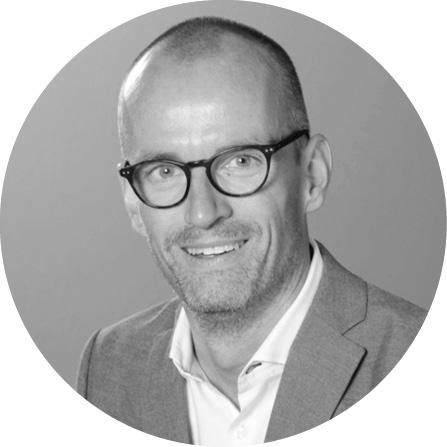




Product
Mathieu Nieuwenhuyse
General
Frederik De Clercq
Sales
Jan Van Iseghem
Regional
Contact
We look forward to partnering with you on your next project. Contact us and we’ll connect you with the right label specialist in your region. marketing@mcclabel.com
Managing Director of MCC Verstraete Maldegem, Belgium +32 50 301 301 peter.grugeon@mcclabel.com
Manager MCC Verstraete Australia Box Hill, Australia +61 417 578 883 justin.bennett@mcclabel.com
Manager MCC Verstraete Americas Batavia, United States +1 940 293 3295 mathieu.nieuwenhuyse@mcclabel.com
& Circular Economy Manager Maldegem, Belgium +32 478 24 09 12 nico.van.de.walle@mcclabel.com
& Marketing Director Maldegem, Belgium +32 473 31 88 43 frederik.de.clercq@mcclabel.com
Sales Manager Europe Maldegem, Belgium +32 478 88 54 81 jan.van.iseghem@mcclabel.com 50
Benedict Adins
Regional Sales Manager Europe
Maldegem, Belgium +32 473 97 42 40 benedict.adins@mcclabel.com
Kim Blondeel
Regional Sales Manager Europe


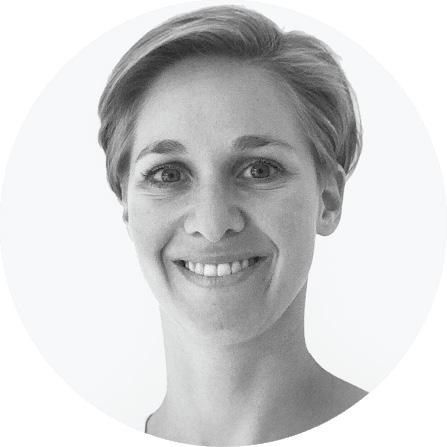

Maldegem, Belgium +32 473 30 08 51 kim.blondeel@mcclabel.com
Stijn Quintyn


Regional Sales Manager Europe & South East Asia
Maldegem, Belgium +32 473 77 21 21 stijn.quintyn@mcclabel.com
Joe Kaddoum
Regional Sales Manager Middle East & Africa
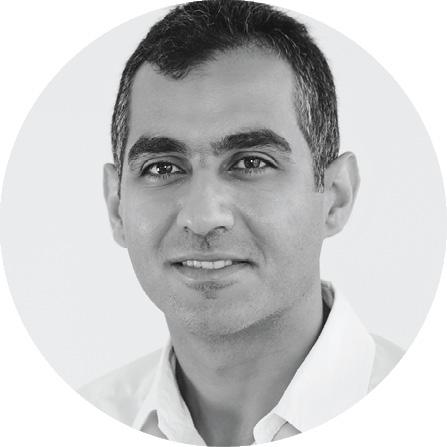
Byblos, Lebanon +961 7070 5011 joe.kaddoum@mcclabel.com
Mikhail Britcyn
Regional Sales and Technical Support Manager
Saint Petersburg, Russia +7 921 993 00 47 mikhail.britcyn@mcclabel.com
Oscar Peres
Regional Sales Manager Latin America
São Paulo, Brazil +55 11 991 757 343 oscar.peres@mcclabel.com
Brian Fleming

Regional Sales Manager North America
Indiana, United States +1 440 429 7680 brian.fleming@mcclabel.com
Brian Roske
Regional Sales Manager North America

Wisconsin, United States +1 608 438 8820 brian.roske@mcclabel.com
Adam Stephens
Sales Manager Australia
Box Hill, Australia +61 408 090 214 adam.stephens@mcclabel.com-
51
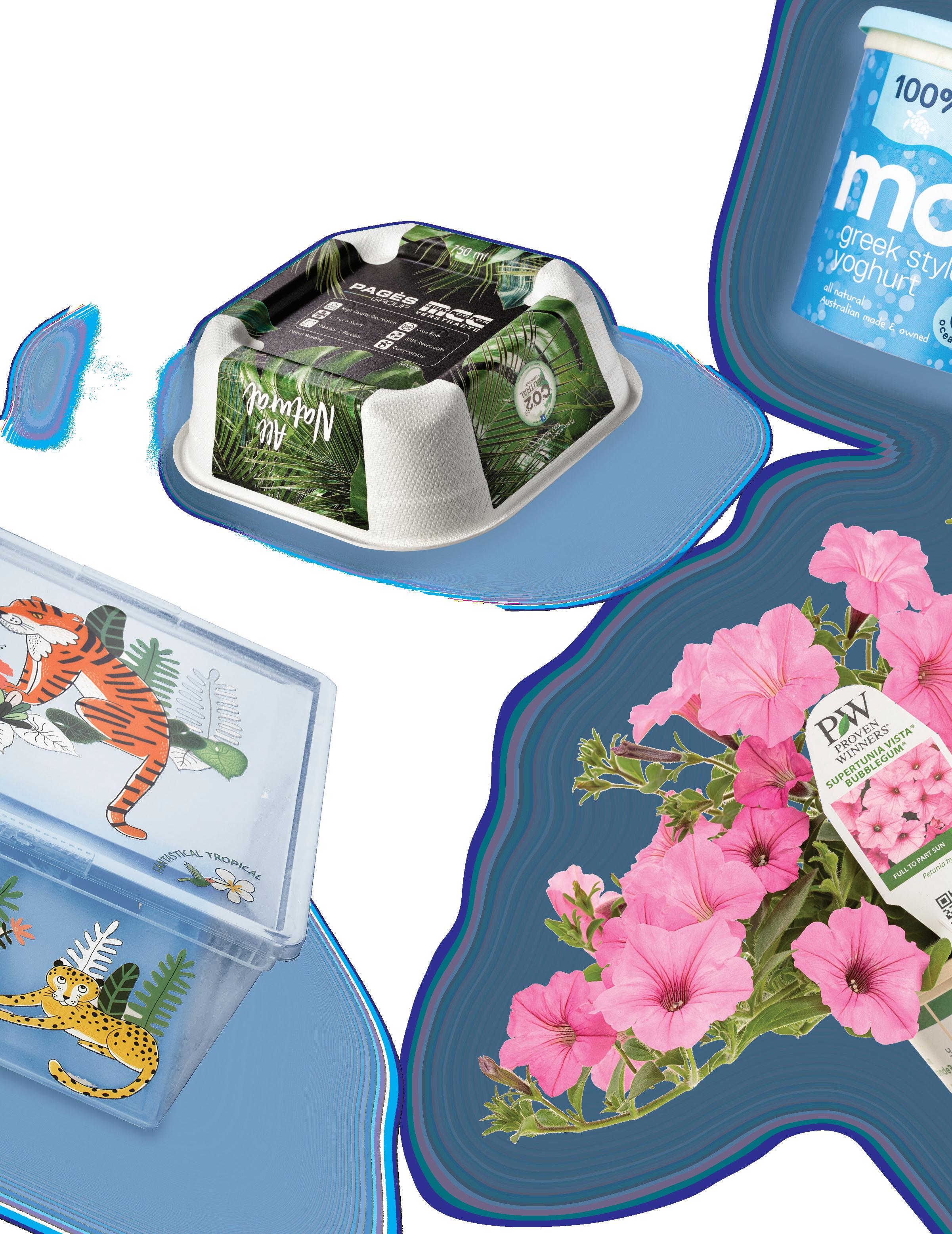






















































 Aurélie Comhaire Group Sustainability Manager at Vandemoortele
Aurélie Comhaire Group Sustainability Manager at Vandemoortele

















































































